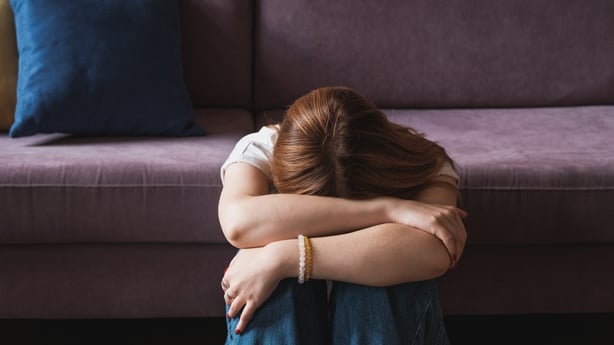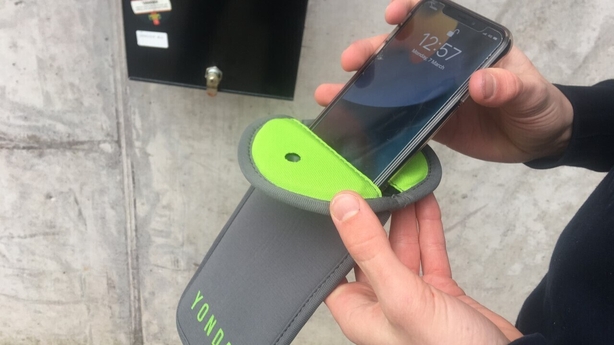On the day of his retirement on Leaving Certificate results day last August, I asked the principal of Limerick's largest secondary school what was the biggest change he had seen in his 40 years in education.
Padraig Flanagan answered without hesitation.
"In days of old, teachers’ knowledge was all that mattered," he said.
"Now, it is teachers' care and support and empathy. In a very challenging world in more recent years the care needs have outstripped the academic requirements."
Later that month another principal touched on a similar point.
Discussing his school’s mobile phone ban at Castlecomer College, Pat Murphy spoke of the deeply concerning impact that social media was having on students.
"I don’t think people realise the depth of the problem; that when you are giving your 12-year-old a mobile phone, you are giving them free access to the internet, and to quote Mary Aiken [Cyber psychologist and writer] that is like letting them loose in a red light district."
In 2024, a number of significant steps were taken to try to bolster the role of schools in arming children and teenagers to protect themselves from dangers and challenges, some of them unimaginable to previous generations, that are seeping into their lives most often via the small gadget that they carry in their pockets.
A new senior cycle Social Personal and Health Education (SPHE) curriculum was published that for the first time will be mandatory in all schools from 2027.
This year also saw the first cohort of students complete a year of the newly mandatory SPHE Junior Cycle curriculum.

And a focus was placed on the unfettered use of mobile phones through Minister for Education Norma Foley’s call for their use to be banned in schools.
All this presents a big challenge to the education system.
In their components on relationships and sexuality education, the new SPHE programmes aim to educate on issues such as how to stay safe when socialising, both in person and online; how to become critical consumers of material online; a young person’s rights, including their right to give or withhold consent in physical relationships; pornography and the negative impact it can have; as well as domestic and gender-based or sexual violence and how to recognise a relationship that is abusive.
All this in an age-appropriate and student-centred way.
A key principle of the new curriculum is to empower young people to feel free to raise issues that they themselves may be concerned about, without fear.
"We are in a new landscape here because of mobile phones," says President of the Irish Second Level Students Union (ISSU) Jack McGinn.
"There is a big bad world out there and we have to arm students to be able to decipher material online and keep themselves safe."
The concerns of the ISSU are reflected by organisations dealing with young people as well as those addressing sexual violence in society.
Citing statistics from the Sexual Assault Treatment Unit at Dublin’s Rotunda Hospital, Rachel Morrogh of the Dublin Rape Crisis centre speaks of "the wave of sexual violence", and the need to give children the tools they need to fight back against it.
Ms Morrogh said: "Without the tools to question and interrogate misogynistic sexual content that they are being bombarded with via platforms such as TikTok our children are at risk.
"This is negatively affecting the mental health of boys and men and it is damaging girls and women when that learned behaviour leaks into real life."
There is now a significant body of research which shows a relationship between the regular consumption of pornography and the perpetration of violence against women and girls.
In research published in October, Ireland’s Sexual Exploitation Research and Policy Institute (SERP) found that many young people were regularly using pornography before their first-ever sexual experience with another person and that this was influencing expectations.
The SERP report quoted family psychotherapist Dr Richard Hogan who gave a chilling description of the impact of pornography that he observed in his work.
"Young men come into my clinic a lot, teenage boys, trying to get off pornography. And I sit with teenage girls, and they tell me what they’ve been asked for in a relationship, and that motivates me, thinking, 'how could this 14-year-old girl have a 14-year-old boyfriend who thought that this [violent/aggressive act during sex] was something that you do with somebody at 14 years of age?’"
Áine Lynch of the National Parents Council says: "Young people today are dealing with a much more complex world. They are being bombarded with messages online and it would be absolutely remiss of the education system not to help them navigate this world by teaching them the media literacy skills they need.
"The most important thing is that classes are done in a way that allows for open conversation without judgement. That openness is critical. The world is changing so quickly, and the curriculum can never keep pace with what is out there, so we need to have flexibility within the curriculum to allow students to raise the issues that concern them."
However, Ms Lynch believes that schools and the authorities need to work to ensure that parents are supported.
"You may have kids coming home and starting conversations that parents are not equipped for. We need to give parents the information they need to support their children, so that they can personalise what their children are learning in school and bring in their own family values."
Tanya Ward of the Children’s Rights Alliance shares the concerns expressed by Rachel Morrogh.
"There is a massive prevalence of porn online and much of it is very violent. This is a very serious problem. Young people are not getting information from their parents or their schools, they are getting it online and they need to learn that much of what they are seeing [there] is not normal and is not good for them."

Sinéad McGrath of the Active Consent Programme, which delivers training across higher, further and second-level education, addresses one misgiving that some parents may have.
"All the research shows that talking about these subjects does not increase sexual activity. If anything, it decreases it," she says.
She meets young Transition Year students who say "Is everybody doing that? Do I have to do it?".
They feel hugely reassured, she says, when they discover that the answer to both questions is 'no’.
If a partnership approach with parents is vital, so too is training for teachers. This is a sensitive and important subject that requires skilled delivery and teachers are understandably nervous.
The ASTI trade union has called for full and comprehensive training for teachers and says no teacher should be assigned to teach the programme unless they wish to and feel confident to teach it.
Both the ASTI and its sister union the Teachers' Union of Ireland had a lot to say also in October when €9 million in funding was announced as part of Budget 2025 for mobile phone pouches and similar gadgets in schools.
Criticising the move, they pointed to other pressing areas that funds should be directed towards, such as pastoral care for students.
Minister Norma Foley’s pouches initiative may have proved highly controversial but her push for stronger bans on the use of mobile phones in schools has resonated more positively.
However, schools say when it comes to phone usage the real problem is student usage beyond the school gates and at home.
Second-level schooling now is about far more than simply achieving academic results. It is recognised that schools play a pivotal role in the broader formation of young people.
2024 saw significant steps towards formalising their role in educating and empowering students to safely navigate these new challenges.
However, this promises to be an uphill battle and one that will endure over many years to come.







